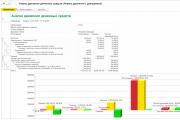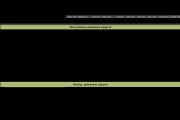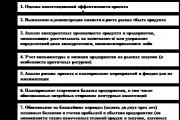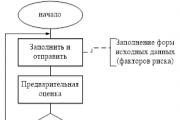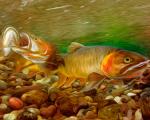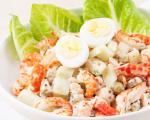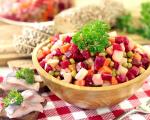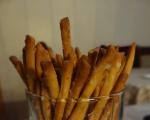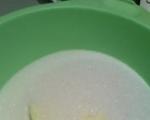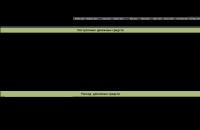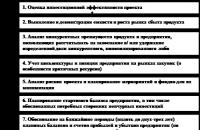About a month after the exacerbation patients with nonspecific ulcerative colitis must be adhered to strict diet. Then it softens and full recovery You don't have to stick to the diet.
If the disease is very severe, then nutrition should be minimal. In this case, in the first days it is better to fast altogether (and not even drink).
To replenish the loss of fluid and proteins, droppers with appropriate solutions or feeding through a tube are offered.
Then, when the patient’s condition improves, the following diet is recommended: proteins – 100 g, fats – 100 g, carbohydrates – 400-450 g, salt– up to 15 g. You should eat at least 4 times a day. It is steamed or boiled (sometimes it is possible to fry some dishes), and is served in crushed form.
- Low-fat varieties of meat, fish and poultry, stewed, boiled and, as an exception, fried, are suitable for the diet. Soups are prepared using weak and low-fat meat and fish broths.
- Vegetarian first courses (including mushroom ones) are also allowed. They are seasoned with chopped vegetables and various cereals.
- For porridge, you can use any cereal, with the exception of pearl barley and millet. Pasta is included in the diet.
- Dairy products include fresh cottage cheese, non-acidic sour cream (as a seasoning for dishes), dairy products, milk (only in dishes), mild cheese.
- Eggs are prepared soft-boiled or in the form of an omelet. Unsalted butter is added to dishes.
- Low-fat ham, doctor's sausage, jellied meat or fish, beef liver or poultry liver pate, and soaked herring are offered as appetizers.
- Vegetables are served boiled or stewed. These are potatoes (mashed potatoes, casseroles), boiled cauliflower with butter, early zucchini and pumpkins (fried), white cabbage and beets (if well tolerated). Fresh tomatoes and cucumbers are not excluded from the diet.
- Fruits and berries are widely represented in the diet - you can eat any, with the exception of apricots, plums and melons. Fresh compotes, jellies, mousses, and rosehip decoction are relevant.
- Drinks include tea, water coffee with milk and cream.
- You can add spices to dishes (in limited quantities): bay leaf, ground pepper, cinnamon, boiled onion.
- Bakery products suitable for yesterday's wheat bread, unsweetened crackers and cookies, limited quantities of pies with jam, rice, and meat.
Prohibited products:
- Smoked meats and marinades.
- Raw onions, garlic, sorrel, spinach, radishes, rutabaga.
- Vinegar, mustard, horseradish, ground pepper.
Sample diet menu:
- 1st breakfast: pureed fresh cottage cheese with sugar and sour cream, semolina in milk with a piece of butter, raspberry juice (or rosehip decoction).
- 2nd breakfast: baked apple, tea with milk, crackers.
- Lunch: noodle soup, potato roll with mashed meat, apple and pear jelly.
- Afternoon snack: rosehip decoction, a slice of toasted white bread.
- Dinner: steamed fish cutlet with mashed potatoes. Weak tea with crackers.
- At night: juice, crackers.
In case of exacerbation of colitis, gentle nutrition without milk, vegetables and fruits is indicated. As you improve, the diet is slightly expanded. The menu includes boiled and chopped dishes.
What diet is needed for ulcerative colitis
Nonspecific ulcerative colitis is a disease that occurs with intestinal inflammation, formation ulcerative defects in the colon and rectum. Accompanied by severe pain and diarrhea. In case of severe exacerbation, patients are allowed to drink only tea and eat pureed apples for one or two days. Then diet 4 according to Pevzner is prescribed with an additional intake of protein (120 g), a decrease in fat (55 g) and carbohydrates (200 g).
The same style of eating (table 4) is also used for exacerbation of non-ulcerative colitis with diarrhea, loss of appetite, and severe weakness. At the same time, the amount of nutrients remains unchanged: proteins 100 g, fats 100 g, carbohydrates 400 g. After 4-5 days, the diet is expanded - a diet of 4 b is prescribed for a month.
If an exacerbation of colitis is accompanied by constipation, then 4b is immediately prescribed with maximum mechanical sparing (mashed dishes) and restriction irritants. Gradually, the patient is transferred to the unpureed version, and fruits and vegetables are added to the diet.
Nutrition for exacerbation of colitis with diarrhea (table 4)
All products are boiled in water or steamed. Meals are recommended 5-6 times a day in small portions.
Authorized Products
When preparing a diet, use:
- soup made with water, weak meat broth with semolina, boiled rice or oatmeal, buckwheat flour, meatballs;
- rice porridge, buckwheat, oatmeal and semolina (mashed);
- cutlets and steamed meatballs from chicken, turkey, beef, pike perch, pike;
- calcined cottage cheese (from milk);
- steamed or soft-boiled eggs for omelet;
- jelly, jelly, juices half diluted with water, tea from blueberries (dry), black currants or rose hips;
- sugar 20 g, honey 2 tablespoons;
- butter 10 g;
- dried white bread, homemade crackers.
Prohibited Products
The following should be completely excluded from the diet of patients in the acute stage:
- all dairy products, whole milk (you can only calcined cottage cheese), first or second courses with milk;
- any fats except a small amount of butter;
- fresh and boiled vegetables, fruits, berries in their natural form;
- compote, jam;
- all canned food, marinades, pickles;
- strong brews, vegetable or cereal soup;
- fatty meat and fish products;
- snacks;
- all ready-made sauces, herbs, spices;
- millet, barley, barley, legumes, pasta;
- bread products, pastries;
- sweets;
- hot, cold dishes, drinks, carbonated drinks;
- coffee and cocoa with milk.
Sample menu for colitis and diarrhea
For nonspecific ulcerative colitis in the acute stage, as well as in case of intestinal inflammation with diarrhea, you can use the following indicative menu:
- steam omelette, rosehip tea;
- blackcurrant jelly, calcined cottage cheese;
- chicken broth soup with semolina, steamed chicken meatballs with rice porridge;
- oatmeal jelly;
- pureed buckwheat porridge with steamed pike cutlets.
Steam omelette without milk
To prepare you need:
- eggs – 4 quail (2 chicken);
- water – 80 ml;
- butter – 5 g;
- salt – 1 g.
Beat eggs with cold water and salt. Place the mixture in a mold so that the layer of the mixture is no higher than 4 cm for good boiling. Cook in a water bath for 10 minutes.
Blackcurrant jelly

To make jelly you will need:
- black currant – 2 tablespoons;
- water – 150 g;
- gelatin – 5 g;
- sugar - a teaspoon.
Grind the currants with sugar, add water, bring to a boil and strain. For 5 g of gelatin you need 50 g of water. It is left to swell for 60 minutes. Strained currant tea Place on low heat, heat until a bubble appears and pour in the prepared gelatin. Immediately pour into molds and cool for an hour at room temperature, then in the refrigerator.
Calcined cottage cheese
For 500 ml of milk you will need 10 ml of calcium chloride. The milk is brought to a boil, the solution from the ampoule is added, mixed and placed on gauze in two layers. After the whey has drained, the curd is ready.
Chicken soup with semolina

For the dietary first course you need to take:
- chicken fillet – 100 g;
- water – 500 ml;
- semolina – 20 g;
- egg - one quail;
- carrots - half;
- parsley - a small sprig;
- salt 1 g.
First, fill the fillet (entirely) with water so that it covers it by 1 cm. Bring the liquid to a boil and drain. Refill with water (500 ml) and add carrots. Cook for 30 minutes. Then take out the meat and carrots, pour semolina into the boiling broth in a thin stream and cook for another 10 minutes, stirring. When serving, add a boiled egg and parsley to the plate.
Diet 4b for colitis with constipation
A special feature of prescribing this therapeutic nutrition when an exacerbation of ulcerative colitis subsides is the gradual introduction of new dishes and products, monitoring based on tolerance.
What can you eat
Diet 4b allows:
- soup with a decoction of vegetables, meat, fish with pureed cereals, small noodles, vegetable puree, meatballs made from low-fat meat and fish;
- dried bread, dry biscuits, biscuits. No more than once a week you can bake homemade cakes with cottage cheese, apples or jam;
- milk, cream for adding to dishes;
- kefir, yogurt, homemade cottage cheese, casseroles, puddings;
- beef, chicken, turkey for cutlets, souffle, meatballs;
- chicken, rabbit and veal - beef stroganoff from boiled meat;
- pike perch, perch, pike, boiled, steamed, for chopped products;
- mashed potatoes, carrots, cauliflower;
- boiled pumpkin, young zucchini;
- half fresh tomato without skin;
- eggs for omelet, soft-boiled;
- oatmeal, pureed buckwheat porridge, casseroles, noodles;
- broth-based sauces made from meat or vegetables;
- dill, parsley;
- sweet and ripe fruits no more than 100 g fresh;
- mashed compote, mousses, baked apples;
- dessert – marmalade, marshmallows, jam;
- drinks - juices half and half with water, rosehip decoction, weak tea and coffee (can be with milk).
What remains prohibited
- fresh bread, rye, with bran, products made from butter, puff pastry;
- borscht, beetroot soup, okroshka, rassolnik, soup with legumes, milk;
- lamb, pork, goose, smoked sausages, canned food, salted fish;
- fried eggs;
- pearl barley, millet;
- mushrooms, onions, turnips, radishes, beets, garlic, cucumbers;
- spinach, sorrel, wild garlic;
- plums, apricots, dried fruits, grapes;
- ice cream, cake, pastry;
- horseradish, vinegar, mustard, pepper.
Indicative menu for table 4 b
Nutrition for patients with a subsiding exacerbation or with an initial tendency to constipation includes:
- oatmeal with apples, rosehip tea;
- cottage cheese with cream and pumpkin puree;
- zucchini and cauliflower soup with fish balls, steam omelette;
- baked apples and dried biscuit;
- chicken beef stroganoff with mashed potatoes and tomato;
- yogurt with biscuits.
Zucchini and cauliflower soup with fish balls

To prepare you should take:
- pike perch fillet – 200 g;
- potatoes - 2 pieces;
- carrots – 1 piece;
- cauliflower - a third of a small head of cabbage;
- zucchini - a third of a small one;
- semolina - dessert spoon without top;
- egg - 1 piece;
- salt - to taste;
- water – 1.5 liters.
First, potatoes, carrots and cauliflower are thrown into boiling water. Boil them until full readiness. At this time, the pike perch fillet is passed through a meat grinder twice, an egg, salt and semolina are added. Leave for 20 minutes.
Received vegetable soup beat with a blender, put on low heat, throw in the zucchini, cut into small cubes. Then use a spoon to form meatballs small size and lower them into the soup, when they all float up, then boil for another 5 minutes and remove from the heat.
Chicken beef stroganoff

For this dish you need:
- chicken fillet 150 g;
- carrots - one small;
- parsley root – 5 g;
- salt 1 g;
- sour cream 20 g.
Boil the chicken fillet until fully cooked with parsley root, carrots and cut into strips. Grind the carrots to a puree. Add carrots and sour cream, diluted half with broth, to the chopped boiled meat, simmer all together for another 5 minutes.
With nonspecific ulcerative colitis, strictly limit all foods that can irritate the intestines: milk, fresh vegetables, fruits, and so on. As the condition improves, the diet is gradually expanded. It is important to maintain equal intervals between meals and distribute the daily diet into 5-6 meals.
Dr. Lerner offers personalized. In St. Petersburg, it is possible to call a doctor at home. We send herbal medicines to other cities by mail.
Nutrition of a patient in an acute condition or with exacerbation of chronic ulcerative colitis in moderate to severe cases
All the patient’s food should be at room temperature or up to 40°C, liquid, semi-liquid or pureed, boiled, baked or steamed. Daily ration should be divided into 6 doses at equal intervals. Salt can be used to taste, but do not add too much salt to your food.
Authorized Products
Flour products
Gray or white day-baked wheat bread, biscuits, savory buns, white bread crackers.
Dairy
Fresh low-fat cottage cheese, acidophilus milk, three-day kefir, sour cream as a seasoning for salads.
First meal
Soups cooked in a second meat or fish broth, with the addition of semolina or rice cereal, pureed boiled meat, meatballs, homemade noodles, vermicelli.
Meat and fish products
Dishes are prepared from low-fat varieties meat: beef, veal, turkey, chicken, rabbit, as well as lean fish: hake, crucian carp and others. Patients can have steamed meatballs or soufflé.
Cereals
Oatmeal, buckwheat or rice porridge, cooked in water and pureed, are allowed.
Soft-boiled egg (1 per day), steam omelettes.
Vegetables
Potatoes, carrots, onions, cabbage, early zucchini, pumpkin, cucumbers, tomatoes. Vegetables are boiled and pureed. You can add finely chopped herbs to ready-made dishes: parsley or dill.
Of the fats, fresh butter up to 5 g is allowed - added to ready-made dishes, ghee or olive oil.
Fruits and berries are crushed into puree, jelly, jelly, mousse and jam are prepared.
Sugar and caramel candies are allowed in limited quantities.
Fruit, vegetable or berry juices are diluted in half with water and taken warm.
Beverages
Rosehip decoction, weak tea, cocoa in water with the addition of a small amount of milk.
Prohibited Products
- Products made from warm and rich dough.
- Vegetable and milk soups, borscht, rassolnik, solyanka, cabbage soup, as well as soups prepared with meat or fish broth.
- Fatty meats and fish, sausages, balyk, dried or smoked meat, herring, lard, canned fish and meat.
- Cereals: pearl barley, millet, barley.
- Pasta.
- Eggs, raw or fried, or hard-boiled.
- Whole milk, cream, full-fat cottage cheese, fresh kefir, curdled milk, fermented baked milk.
- Mushrooms, canned vegetables, soaked vegetables and fruits.
- All vegetables fried or stewed.
- Honey, chocolates, raw fruits and berries.
- Spicy seasonings and sauces: mustard, horseradish, mayonnaise, black pepper.
- Carbonated drinks, whole and canned juices, coffee.
- Animal or cooking fats.
Sample menu in the acute period of ulcerative colitis
1st breakfast: oatmeal cooked in water and pureed, pureed fresh low-fat cottage cheese, weak tea.
2nd breakfast: blackcurrant jelly.
Lunch: second chicken broth soup with semolina, steamed beef meatballs, pureed rice porridge, clarified apple juice.
Afternoon snack: warm rose hip decoction
Dinner: steam omelette, pureed buckwheat porridge cooked in water, tea.
Before bed: biscuits, warm rosehip infusion.
Nutrition of a patient with acute UC with a mild course or when the condition of a patient with a moderate course improves
The patient's diet is expanded by adding crushed foods. The daily diet is distributed into 5-6 doses at equal intervals. The patient can eat biscuits and baked pies made from soft dough with potatoes, apples and other fillings. Can be added to soups pasta and finely chopped vegetables.
Boiled and chopped lean meat or lean boiled chopped fish are allowed. Whole milk or cream can be added to cereals or tea. The patient can also have several pieces of unsalted cheese per day. Up to 100 g per day is allowed to consume ripe fresh tomatoes.
For snacks, the patient can eat fish aspic and sturgeon caviar. You can serve dishes with bechamel milk sauce or vegetable broth sauces. If tolerated well, the amount of butter can be increased to 15 g per dose.
Sample menu for a patient with a mild course of ulcerative colitis or when the condition of a patient with a moderate course of ulcerative colitis improves
1st breakfast: milk semolina porridge, steam omelette, tea.
2 breakfast: baked apples.
Lunch: vegetable soup with chicken breast, carrot puree, meat dumplings, half and half orange juice and warm water.
Afternoon snack: jelly.
Dinner: mashed potatoes, chopped boiled hake fish, rice pudding with fruit sauce, tea.
Nonspecific ulcerative colitis is quite serious illness which requires timely treatment. Patients are prescribed not only drug therapy, but also additional treatment measures that help stabilize the patient’s condition. In most cases, patients are prescribed a diet for nonspecific ulcerative colitis.
Nutrition rules
Diet as one of the ways to improve the functioning of the gastrointestinal tract.
When the disease develops, the diet should be developed only by a doctor, who takes into account the characteristics of the course of the disease, as well as its stage.
At correct drafting Diet and adherence to its rules, patients will notice improvements within a week.
The patient is advised to steam all meals. You can also eat boiled foods; eating excessively cold or very hot food is strictly prohibited. If the dishes include a large number of calories, they must be consumed before lunch.
Patients with nonspecific ulcerative colitis are strictly prohibited from eating after nine o'clock in the evening. When selecting products for a patient, it is recommended to give preference to those options that contain large quantities of protein.
If the patient experiences an exacerbation of ulcerative colitis, then he needs to adhere to table No. 4. This diet is prescribed for a variety of intestinal diseases. Thanks to this nutrition, the inflammatory process is reduced, and fermentation and putrefaction in the intestines are eliminated, which has a positive effect on the treatment process.
With the help of diet, the functioning of the digestive tract is normalized. The patient's body can receive all the necessary nutrients. The effect of dietary nutrition is aimed at enhancing intestinal motility. During the period of its use, the production process stabilizes gastric juice.
A diet is prescribed if the patient has an acute, nonspecific or chronic colitis. The duration of the diet should be at least 7 days.
If a patient with nonspecific ulcerative colitis adheres to all nutritional rules, this will ensure high effectiveness of treatment.
What products are allowed?

When preparing a diet, the doctor must take into account the list of permitted and prohibited foods.
Allowed foods include lean meat and poultry. Experts recommend eating veal, beef, and rabbit meat. Also, the patient’s diet should consist of dairy and fermented milk products:
- Low-fat cottage cheese;
- Yoghurt;
- Whole milk.
Patients can eat one egg daily. If a person experiences an exacerbation of ulcerative colitis, then he is allowed to use only boiled protein. Doctors prohibit eating boiled eggs. When the disease appears, you are allowed to eat white bread only if it was baked a day ago.
The diet must necessarily consist of vegetables. They should be boiled or stewed. Before eating vegetables, they must be rubbed through a sieve. Patients are also allowed to eat fruits and desserts that do not affect the increase in stomach acidity.
It is recommended to replace cakes and pastries with berry jelly, fruit drinks, purees, etc. The patient's menu should consist of cereals that contain fiber. It is necessary to prepare puddings and casseroles from buckwheat, rice, and semolina.
As for drinks, patients are allowed to drink green, black and herbal teas, as well as still mineral water. All products can be used for cooking vegetable purees, casseroles, broths, jellies, puddings, salads and other dishes. All dishes must be steamed or boiled.
Thanks to a wide variety of approved foods, a person with ulcerative colitis can be provided with tasty and healthy nutrition.
Prohibited Products

Dried fruits should not be consumed if you have colitis.
To avoid complications of ulcerative colitis, it is necessary to exclude certain foods from the diet.
Patients should not prepare food using spices, mayonnaise, sauce, or tomato. Patients are also strictly prohibited from drinking alcoholic beverages. When dieting, you must completely exclude jam and preserves from any berries and fruits.
Doctors categorically prohibit patients with ulcerative colitis from consuming dried fruits and compotes made from them. When the disease appears, the patient must give up sweets and chocolate.
You should also not consume smoked meats. Doctors strictly prohibit various snacks with preservatives. The patient should refuse flour products:
- Baking;
- Macaron;
- Cakes;
- Cookies.
Cooking rich, fatty and milky soups is strictly prohibited. Fatty poultry and meat should not be consumed if you have ulcerative colitis.
Also, you should not eat pearl barley, barley and wheat. You should avoid kefir, milk and sour cream. Doctors do not recommend eating raw or fried eggs. Consumption of canned food is strictly prohibited.
Absolutely all of the above products must be excluded from the diet, regardless of the stage, form and characteristics of the disease. If the patient's well-being improves, the doctor may allow him some foods. But, in order to avoid the occurrence of complications, it is prohibited to use them spontaneously.
Menu and stages of disease development

A gastroenterologist will help you create the right diet for ulcerative colitis.
For patients with ulcerative colitis, the menu is prescribed only by a gastroenterologist. It determines the characteristics of the development of the disease, on the basis of which the menu is drawn up.
If the patient has a severe form of the disease, then he needs to increase the amount of protein. This is explained by its very rapid elimination against the background of intoxication.
The patient's diet should consist of low-fat cottage cheese, boiled eggs, cheese, lean meat and fish, buckwheat. The menu looks like this:
- For breakfast you need to eat an omelet, which uses two eggs. You should also drink a cup of green, black or herbal tea.
- The patient's second breakfast should consist of cottage cheese.
- For lunch, you can prepare meat soup and boil vegetables.
- The patient's afternoon snack should consist of baked apples.
- Need to cook for dinner rice porridge, jelly and low-fat fish. Fish should be consumed boiled by the patient in an amount of no more than 100 grams.
Quite often, with nonspecific ulcerative colitis, patients are prescribed table No. 4. Due to the high effectiveness of the menu, it is prescribed to children from the age of seven, as well as to adult patients. Table No. 4 consists only of permitted products, which eliminates the possibility of developing the disease.
The patient is recommended to eat for breakfast buckwheat porridge, which is cooked in water, steamed cutlet and tea. The second breakfast should consist of a piece of boiled meat and jelly. For lunch, you can prepare a rice casserole to which meat is added, as well as soup with meatballs and pear compote.
The patient's afternoon snack should consist of crackers and tea. For dinner, the patient is given mashed potatoes, for the preparation of which meat broth. You also need to eat a fish cutlet and wash it down with tea. For the second dinner you are allowed to eat one baked apple.
Both diets are quite effective in the treatment of ulcerative colitis, so they are often prescribed to patients.
The most popular diets

If the patient experiences an exacerbation of the disease, then he needs to eat only thermally processed food. The patient's menu should not consist of fresh fruits and berries.
The patient's breakfast should consist of cereal porridge. In this case, eating buckwheat is not recommended. You can wash down breakfast with jelly. Second breakfast can consist of two soft-boiled eggs.
The patient's lunch consists of soup, meat soufflé and steamed curd pudding. An afternoon snack may consist of crackers and compote. For dinner you can eat rice porridge and a steamed cutlet.
In order to prevent exacerbation of ulcerative colitis, it is also necessary to use dietary nutrition. With its help, the remission of the disease is significantly prolonged. In this case, the patient’s breakfast should consist of a steamed omelet, tea or jelly, as well as cottage cheese, of which no more than 100 grams should be eaten.
For second breakfast, eat only non-acidic fruits. For lunch you can prepare meat soup or low-fat borscht, a steamed cutlet and a vegetable salad. An afternoon snack for a patient with ulcerative colitis should consist of cookies and tea. Meat casserole is prepared for dinner.
Nonspecific ulcerative colitis, for which a diet is prescribed without fail, is a serious disease that requires a special approach to treatment. That is why nutrition for the patient must be developed by a doctor.
This video will tell you how to treat nonspecific ulcerative colitis:
One of the best ways The treatment of gastrointestinal diseases is a strict diet. In case of colitis during the period of exacerbation, it is recommended to pay special attention to the organization of nutrition.
Why does colitis occur and how does it progress?
Colitis is most often caused by poor nutrition. Violation of the regime, use junk food, as well as alcohol abuse, do not have the best effect on the condition of the intestines. In addition, colitis may develop due to an intestinal infection or helminthic infestation. Also, this disease often occurs when:
- long-term use of antibiotics and abuse of laxatives;
- surgical interventions or injuries in the abdominal area;
- food allergies;
- frequent stress.
It is worth noting that the course of colitis at the initial stage is not very pronounced. Unpleasant sensations are not permanent, but occur sporadically and can alternate with each other. This is why people often ignore unpleasant symptoms without seeking medical help. This is how colitis develops into a chronic form with periodic exacerbations. To normalize the condition, it is necessary healthy diet. In case of colitis during an exacerbation, food should be gentle.

Main symptoms
Acute or chronic colitis is accompanied by a number of unpleasant symptoms. The most common ones include the following:
- pain that is localized in the side of the abdomen (usually intensifies before defecation or after eating harmful foods);
- bloating, accompanied by a feeling of fullness;
- frequent belching and flatulence;
- nausea and vomiting;
- bowel dysfunction;
- mucous and bloody discharge during bowel movements;
- bitterness in the mouth in the morning;
- accompanying symptoms such as headache and physical weakness.

Pin the principles of proper nutrition
Compliance with some mandatory rules requires a diet for colitis. During the period of exacerbation, as well as for the purpose of its prevention, you should be guided by the following principles:
- you need to eat little and often (there should be about 6 meals in total during the day);
- food must be chewed thoroughly (for each piece there should be at least 30 jaw movements);
- Every time before a meal, it is advisable to eat a small peeled apple;
- refusal of solid and dry foods;
- It is unacceptable to eat foods that are too hot or too cold;
- copious fluid intake.

Diet No. 4
Which proper diet for colitis during an exacerbation? Experts in the field of gastroenterology recommend adhering to special menu. It is also known as Diet No. 4. It is characterized by the following features:
People suffering from chronic or acute colitis are recommended to follow the so-called diet No. 4. It includes foods that not only do not harm the intestines, but also help support them functional state. Thus, a diet for colitis during an exacerbation involves consuming the following products:
- dairy products;
- slimy soups based on low-fat broth;
- white meat and fish, steamed or boiled;
- rice, semolina or oatmeal porridge cooked in water;
- jelly and jellies based on fruits and berries;
- boiled eggs or omelet;
- rosehip decoction;
- fresh fruits and vegetables in grated form;
- hard cheeses (unsalted);
- biscuits;
- cinnamon as a seasoning.

Prohibited Products
A number of restrictions characterize the diet for colitis during an exacerbation. The list of products prohibited for consumption is as follows:
- sausage and frankfurters;
- onions and garlic, as well as hot spices and herbs;
- apricots and plums in any form;
- black bread;
- fresh bread and others flour products(especially baked goods);
- borsch;
- milk soups;
- alcohol;
- pickled and smoked products;
- whole milk;
- carbonated drinks;
- fried foods;
- coffee and chocolate;
- pasta;
- rich broths;
- fatty fish and meats;
- pearl barley;
- peas, beans and other legumes;
- concentrated juices.

Approximate menu for the day
Most important point treatment is a diet for colitis during an exacerbation. Meals should be balanced and light. Approximate menu for the day it looks like this:
- need to eat for breakfast oatmeal on water and cottage cheese (both dishes are grated), and also drink unsweetened tea;
- followed by a snack of dried blueberries;
- It is recommended to eat for lunch light chicken broth with semolina, steamed meatballs, as well as rice porridge with water and jelly;
- dinner consists of a steamed omelette, grated buckwheat porridge and tea;
- A couple of hours before bedtime, you can drink fruit or oatmeal jelly.
Diet depending on the type of colitis
The diet for colitis during an exacerbation largely depends on what symptoms accompany the disease. So, based on the manifestations of the disease, nutrition may be as follows:
| Disease | Nutritional Features |
| Ulcerative colitis | The basis of the diet should be protein food. It is worth paying attention to fish, cottage cheese, chicken, as well as soft-boiled eggs. Fats are consumed in limited quantities. |
| Colitis with constipation | The emphasis should be on fermented milk products. Solid foods need to be ground or crushed. It is acceptable to eat lightly roasted dishes. |
| Colitis with diarrhea | To normalize intestinal function, it is recommended to eat dried bread. The basis of the diet is boiled meat and fish. Fried and hard-boiled eggs are strictly prohibited. You should completely avoid fatty foods. |
| Spastic colitis | Accompanied painful sensations, and therefore it is important to eat food that will not irritate the intestines. You should give preference to pureed soups and boiled porridges. Meat and fish should be cooked exclusively by steaming. |
| Catarrhal colitis | For the first 2-3 days of the diet, it is permissible to drink only herbal infusions And mineral water without gas. Next, you need to eat in small portions, gradually increasing the number of meals. Avoid milk, legumes and smoked foods. |
| Atrophic colitis | It is worth giving preference to products that do not contain coarse fiber. |
Diet for colitis during an exacerbation: nutrition and recipes
Having dealt with the list of products recommended for consumption, it is important to combine them into useful ones, and most importantly - delicious dishes. The diet for colitis during an exacerbation should be based on soft, enveloping and light textures. We decided to present the recipes in the form of a table.
| Dishes | Ingredients | Preparation |
| Oatmeal jelly | - One part oatmeal;
- two parts water.
| Pour water over the oatmeal, mix well and leave overnight. In the morning, strain and put the resulting liquid on the fire. Heat until the mixture thickens to jelly. Drink half a glass before meals. |
| Boiled meat cutlets | - Small chicken breast;
- half a glass of rice cereal;
- glass of water;
- 1 egg;
- a pinch of salt.
| First, boil the breast and rice. While the porridge is cooling, the meat needs to be twisted three times in a meat grinder. Mix everything, then form cutlets from the resulting mass. The dish is steamed. |
| Curd soufflé | - 100 g cottage cheese;
- 10 g semolina;
- 5 g sugar;
- 1 egg.
| The cottage cheese must be rubbed through a sieve several times, then mixed with semolina, sugar and yolk. Beat the whites into a strong foam and gently fold into the cottage cheese. Place the mixture in a greased pan and steam until ready. |
| Broth with semolina | - Half a liter of meat broth;
- 1 carrot;
- 1 onion;
- 20 g semolina;
- parsley;
- a pinch of salt.
| Add vegetables, salt and herbs to the concentrated meat broth and cook for a quarter of an hour. Strain the cooled liquid and dilute with water in equal proportions. Put the broth back on the fire and bring to a boil. Carefully add semolina and cook until done. |
| Liver pudding | - 100 g beef liver;
- 1 carrot;
- 1 egg;
- 1 tbsp. l. milk powder;
- 1 tbsp. l. drain oils;
- a little salt.
| Grind the washed, film-free liver in a meat grinder. Grate the boiled carrots. Combine liver, carrots, egg yolk, butter, powdered milk and salt. Beat the egg whites separately and then combine them with the liver. Pour the mixture into a mold and steam it. |
Nutrition when your condition improves
A strict diet for intestinal colitis during an exacerbation period contributes to a fairly rapid improvement in the condition. As a result, the diet gradually begins to expand.
 So, it is permissible to eat not only boiled and steamed, but also baked dishes (be sure to remove the crust). The following can be gradually added to the list of permitted products:
So, it is permissible to eat not only boiled and steamed, but also baked dishes (be sure to remove the crust). The following can be gradually added to the list of permitted products:
- ripe tomatoes and potatoes in limited quantities;
- products made from lean dough (buns, pies with cottage cheese, fruit, eggs or meat);
- pasta as an additive to soups;
- ripe fruits and berries, peeled and pitted;
- weak coffee;
- sweets such as marshmallows, marshmallows, marmalade, preserves and jams.
As the condition improves, it is recommended to expand the diet by consuming small quantities of sausages, vegetable oil and other forbidden foods. This is not systematic, but is only aimed at ensuring that the intestines are ready to process any food.
Prevention of colitis
The best prevention of gastrointestinal diseases is a proper diet. For colitis during an exacerbation, it is important to consume healthy food. But it is better to prevent the problem than to treat it later. That is why it is recommended to always adhere to the principles proper nutrition. It is also worth remembering that nervous tension and stress can lead to a sharp deterioration in the condition. This is why it is important to avoid negative emotions and bad mood.
 Forget about bad habits(smoking and alcohol). A antiviral drugs and take antibiotics strictly as prescribed by the doctor, while simultaneously taking medications that protect the stomach and intestines.
Forget about bad habits(smoking and alcohol). A antiviral drugs and take antibiotics strictly as prescribed by the doctor, while simultaneously taking medications that protect the stomach and intestines.
Diet - effective method against intestinal colitis. It is recommended to enter dietary dishes at the beginning of the developing disease. If you hesitate and do not carry out treatment, you will face severe pain in the intestines.
The doctor decides: to use a diet or act in another way in the fight against the disease. A calibrated food set can ease the work of the gastrointestinal tract and improve intestinal performance.
What is intestinal colitis and its features
The topic of intestinal colitis has not been fully studied. There is controversy among doctors. Lack of eating routine wrong diet nutrition contribute to the occurrence and development of the disease.
Colitis is inflammation of the colon. The disease occurs in women over 20 years of age and in older men. There are many reasons for the occurrence of the disease. With intestinal colitis, the main argument is an incorrect lifestyle. A person prefers fatty foods bakery products, semi-finished products. This negatively affects their health. People don't want to eat right. Frequent use of antibiotics leads to harmful effects on the mucous membrane.
Diet rules
The longer it is left untreated, the longer the intestine will become inflamed. The patient will feel discomfort in the body, bloating, fermentation, constipation, diarrhea, flatulence. The pain will increase. The goal is to reduce fermentation. Compliance with most of the proposed rules will result in positive result– improvement of the condition. The doctor informs you about the diet conditions.
- Stick to your meal schedule;
- A balanced set of products, a variety of foods;
- Do not eat foods containing fiber: whole grains, fruit peels, corn;
- For colitis accompanied by constipation, ingredients containing soluble fiber are added to the diet. These are fruits, vegetable representatives, rolled oats, rice;
- It is recommended to reduce the use of milk products;
- It is advisable to use during a diet fish fat, vitamins;
- The main thing is to prepare the products correctly;
- Eat less unhealthy fried foods and do not overuse spices.
Allowed foods for colitis
Products allowed for intestinal diseases:

A person can allow himself to add sugar to his food and eat sweets in small quantities. The question about nuts is still unresolved. But the beneficial properties have long been known.
Prohibited foods for colitis
Products prohibited chronic disease:
- Sausages, canned products, fatty meats, fish dishes;
- Significant consumption of seasonings;
- Fresh vegetables, berries, fruits: radish, pumpkin, beets;
- Millet porridge, barley groats, pearl barley, products from the “legumes” category;
- Mushroom delicacy;
- Whole wheat bread;
- Butter rolls;
- Cocoa products;
- Ice cream.

Diet for various types of intestinal colitis
Exist different kinds colitis They differ from each other in the cause of their occurrence, the intensity of the pain, and the affected area of the intestine. Intestinal colitis occurs in different ways. And each form requires an approach. A specific one is selected therapeutic diet nutrition. In one variant it is accompanied by constipation, in another - diarrhea, in the third case - an ulcerative condition.
For constipation with bloating and flatulence, a set of laxative ingredients is used. When the symptoms of the disease are weakening, they consume a food set containing sugar: honey, fruits. Fats also will not cause significant harm to the body.
It is advised to exclude fresh vegetables and bananas. During remission, you can eat vegetables without processing, but in limited quantities.
A patient with a chronic disease with constipation can eat pumpkin, beets, carrots, cauliflower, zucchini, and celery.
Apples and kefir are beneficial for colitis. Dried fruits are also allowed to be consumed in small doses.

For spastic colitis, avoid foods that cause cramps.
Suggested menu:
- Buckwheat porridge with butter; cottage cheese casserole with dried fruits;
- Apples, biscuits in the oven;
- First course of vegetables, steamed veal cutlets, stewed zucchini, dried fruit compote;
- Recipes for a salad of grated boiled beets with the addition of prunes, sour cream dressing;
- Vegetable casserole with minced meat.
Acute colitis occurs with diarrhea. The symptom of diarrhea leads to the opposite situation. The right diet composes a set of ingredients to normalize stool. It is recommended to reduce the number of meals. Five meals a day will do, without second breakfast and afternoon snack.
The ingredients suitable for use for diarrhea are the same as those allowed for constipation. These are steamed dishes, fresh baked goods, fatty meats. IN this period Rice cereal and vermicelli are beneficial. Kissel is an important tool in normalizing the body’s condition. The liquid covers the mucous membranes and acts as protection against irritating components.
Daily menu:
- Curd puffed biscuit, tea;
- Milk porridge made from rice with an apple baked in the oven;
- Boiled meat, potato soup, steamed fish, jelly;
- Cottage cheese soufflé, tea;
- Buckwheat krupenik.
It is important to remember that with diarrhea, toxins and waste are eliminated. The diet is designed to help the process.
Nonspecific ulcerative colitis (UC) – chronic illness, affecting the mucous membrane of the colon. At peptic ulcer disease apply food 4 times a day. In the morning and lunchtime, most of the proposed menu for the day is eaten. Food is served warm and prepared by boiling or stewing.
The main feature is tracking the resulting protein. During the stage of dehydration of the body, the amount of protein decreases. The normal value for women is 1.5 g, for men – 2 g per kilogram of weight.
Excess of the substance is also dangerous, as it causes suppuration in the intestines.
Eggs, cottage cheese, and cheese contain protein. A significant fat content should not be allowed; use during the day should not exceed 60 g. The normal carbohydrate intake is 250 g/day. Monitor your fiber levels.
Suggested set of dishes for the day for nonspecific colitis:
- Rice porridge;
- First course of potatoes with meatballs;
- Steamed cutlet, rice, baked apple;
- Potato soup with meat balls, baked vermicelli with minced meat;
- Fish cutlet, puree.
This set is distributed for a week.
Nuances in nutrition in acute and chronic form
Proper nutrition is especially necessary when the disease occurs in acute or chronic forms. The diet is called 4a. Has a strict diet.
The first day during an exacerbation is fasting. It's better not to eat. You need to drink water regularly, a lot. Herbal tea and berry infusions are useful as a drink. It is acceptable to eat several crackers throughout the day.
Increase the amount of food you eat every day. Food basket should not irritate the gastrointestinal tract. The menu is compiled by a doctor who carefully monitors the patient.
There is an exacerbation of a periodic nature. At acute colitis You can eat soups made from broths, into which a slimy decoction of cereals is poured. When remission occurs, do not give up the correct diet.
Nutrition should be balanced, without junk food. Once the first week is over, the inflammatory process will pass, you can expand your diet.
Chronic colitis allows the consumption of baked goods, fatty food allowed only in limited quantities. Milk is allowed for those who have good tolerance to the product. All details of the diet must be agreed with a specialist.
Diet for colitis is a necessary step in curing the disease.
Ulcerative colitis is a serious disease in which there is severe inflammation. Treatment of this pathology, in addition to taking medications, also involves following a special diet. Let us consider in more detail what kind of diet for ulcerative colitis of the intestine is required for patients and what it involves.
Despite the fact that to date, scientists have not yet identified the exact cause of the development of ulcerative colitis, they identify the following factors contributing to the development of this disease:
- Human genetic predisposition to ulcerative colitis and others.
- Long-term use of certain potent drugs medicines, which affect the colon mucosa. These may be anti-inflammatory drugs, hormonal agents and so on.
- Severe psycho-emotional stress and stress.
- A sharp decrease in immunity, which leads to changes in intestinal microflora and makes a person vulnerable to developing ulcerative colitis.
- Bad habits (smoking, drinking alcohol).
- Affected by various intestinal infections.
- Recently suffered appendicitis (read about its signs).
- Poorly balanced (harmful) diet. This means eating fast food, fatty, fried and sour foods.
Symptoms and signs
 The following are distinguished: characteristic symptoms ulcerative colitis:
The following are distinguished: characteristic symptoms ulcerative colitis:
- Fever and increased temperature.
- Frequent nausea and vomiting.
- Digestion and absorption of nutrients.
- Bloating.
- Frequent diarrhea and bloody stools. It may also contain pus and mucus.
- Decreased appetite.
- Weight loss and general exhaustion of the body occurs in advanced cases of ulcerative colitis.
- Stool with diarrhea.
- Frequent false urge to defecate.
- Aching pain in the right side. Although this could be a sign.
- Frequent trips to the toilet at night.
- Skin rash.
- Enlarged liver.
Important! The above symptoms in each individual patient may be slightly different and manifest themselves in a different form of intensity. This largely depends on the severity of the spastic pathology and the cause that caused it.
Features and objectives of the diet for ulcerative colitis
 Dietary nutrition for this disease is primarily aimed at alleviating the patient’s condition, reducing the inflammatory process and pain in a person.
Dietary nutrition for this disease is primarily aimed at alleviating the patient’s condition, reducing the inflammatory process and pain in a person.
Due to the fact that in most cases ulcerative colitis occurs in a chronic form, adult patients will have to follow this dietary menu for years, and in some cases, throughout their lives.
The following are the main dietary provisions for children and adults with ulcerative colitis:
- Meal frequency. The patient needs to eat at least five times a day. At the same time, portions should be small. This way, the person will be full, but at the same time, not overload the digestive system with too much food.
- Dishes must be served warm. You cannot eat hot or cold food.
- You should maintain a balanced diet and do not combine difficult-to-digest foods at one meal.
- Rules heat treatment. Cooking, stewing, baking, and steaming are allowed. Everything else (grilling, frying, smoking, etc.) is strictly prohibited.
- It is important to maintain a stable water balance in the body and drink at least two liters of water per day.
- Most of your nutritional intake should come before lunch. Thus, meat, fish dishes and cereals should be eaten before three o'clock in the afternoon. After this, it is advisable to give preference to light snacks and vegetable dishes.
- The time for dinner should not be later than seven o'clock in the evening. After this, you are only allowed to drink weak tea and chamomile decoction.
- The patient should receive more than 70% of all proteins from meat and fish. It is especially important to increase protein intake when acute form ulcerative colitis.
- The menu should be enriched with foods that will reduce intestinal motility.
- The daily carbohydrate intake should not exceed 250 g.
- To support the body while following this diet, it is recommended to supplement the menu with vitamin complexes containing vitamin A, C, K and calcium.
Important! Dietary nutrition for ulcerative colitis takes into account the fact that almost all patients have food allergy And increased sensitivity on proteins contained in milk. It is for this reason that this diet includes organic consumption of dairy products, with the exception of low-fat ghee.
Forms of colitis and diet
 At acute attack In the first few days of colitis, the diet should be very strict and restrictive. In general, doctors in this condition recommend that the patient refuse food altogether for a couple of days and give the intestines time to rest. At the same time, the patient is only allowed to drink light teas, rosehip and blueberry decoctions.
At acute attack In the first few days of colitis, the diet should be very strict and restrictive. In general, doctors in this condition recommend that the patient refuse food altogether for a couple of days and give the intestines time to rest. At the same time, the patient is only allowed to drink light teas, rosehip and blueberry decoctions.
A couple of days after an attack of illness, you can already add light boiled vegetables and porridge to the menu. Gradually, other foods should be introduced into the diet, including meat, fish and cottage cheese.
When identifying chronic form colitis, you need to follow a diet for at least five months to normalize your condition. In this case, a person needs to completely exclude from the menu those foods that can cause an exacerbation of the disease.
Only with careful compliance with all medical recommendations a person will be able to minimize unpleasant symptoms illness and normalize your condition.
If the patient’s colitis is in remission and significant improvements are observed, then the diet can be somewhat diversified and replenished regular products. The main thing is not to overdo it and start eating everything.
Important! Dietary nutrition for ulcerative colitis of the intestine should be selected for each patient individually, taking into account the patient’s age, the severity of the pathology, and the presence of concomitant diseases. That is why the patient must coordinate all his actions in this therapy with the doctor.
These are not the only ones, but the diet for most diseases is almost identical.
Authorized Products
 With this diet, the patient can eat the following foods and dishes:
With this diet, the patient can eat the following foods and dishes:
- Lean meats. Chicken, turkey and rabbit are suitable for this. You can use them to make steamed cutlets, meatballs and all kinds of rolls.
- Fish. It also should not be greasy and should be served exclusively boiled. As for rich fish broths, they are strictly prohibited.
- Walnuts are very useful and recommended for people with ulcerative colitis. They can be used as an addition to dishes or simply eaten as a dessert.
- Porridge. In principle, you can eat any type of porridge, except pearl barley and millet. They need to be cooked without adding milk. Pasta made from durum wheat is also allowed.
- Eggs can be eaten, but only in the form of an omelet. You can eat no more than five eggs per week.
- For light snacks, homemade jellied fish, pate, soaked herring in limited quantities, and doctor’s sausage are allowed.
- Vegetables. Of these, carrots, pumpkin, boiled beets and zucchini are very useful. You can make pureed soups and all kinds of stews from them. It is not recommended to eat vegetables raw. It is also important to note that this menu should not contain fresh tomatoes.
- Spices you can use include bay leaf, cinnamon, dry onion and peppercorns.
- For sweets, light soufflés, jellies and mousses are allowed. You can also eat homemade jelly and marmalade.
- As for drinks, the diet allows weak green and black tea, berry compote and rosehip decoction. The latter is also recommended for use during exacerbation of the disease.
- Almost all fruits are allowed, especially baked apples. As for juices, you should be careful with them, since some types of juices can increase the production of gastric juice, which will negatively affect digestion.
- Flour biscuits, homemade crackers and pies with meat and apples are allowed.
- For hot dishes, it is recommended to eat well-mashed soups, as well as steamed cutlets made from minced chicken.
- If the patient is not allergic to milk protein, then he can eat homemade cottage cheese and low-fat yogurt (preferably without artificial additives and colorings).
What not to eat
 The diet for ulcerative colitis of the intestine is quite restrictive. It prohibits the consumption of the following products:
The diet for ulcerative colitis of the intestine is quite restrictive. It prohibits the consumption of the following products:
- All alcoholic drinks in any form and quantity. They are prohibited not only for ulcerative colitis, but also for other intestinal diseases (ulcers, gastritis, cholecystitis, etc.).
- All kinds of smoked products (fish, fatty smoked cheeses, meat).
- Mushrooms and various dishes containing them.
- Hot sauces, gravies and spices.
- Fatty meats. These include pork, banana, goose and also duck. These foods are very difficult to digest, so they should not be eaten even in small quantities.
- Legumes can be eaten, but only when they do not cause heaviness in the stomach. In general, you can eat no more than 100 grams of legumes per day.
- Strictly prohibited fresh tomatoes and cucumbers.
- All kinds of pickles and pickled vegetables.
- Dishes with added vinegar.
- Fresh onions, garlic and horseradish.
- Spinach and radish.
- All kinds of sausages, frankfurters and other meat products.
- Sweet confectionery. This means a complete ban on sweets, chocolate, cakes, all kinds of pastries and ice cream.
- Coffee and cocoa.
- Heavy cream and other fermented milk products with increased content fat
- Fast food.
- Mustard, garlic sauce and ketchup.
- Dumplings.
- Crackers and other junk food.
It is also worth mentioning separately that each patient should be guided by his own feelings and independently adjust the allowed dishes in this diet, selecting and combining the easiest to digest foods.

Anton palaznikov
Gastroenterologist, therapist
Work experience more than 7 years.
Professional skills: diagnosis and treatment of diseases of the gastrointestinal tract and biliary system.














 So, it is permissible to eat not only boiled and steamed, but also baked dishes (be sure to remove the crust). The following can be gradually added to the list of permitted products:
So, it is permissible to eat not only boiled and steamed, but also baked dishes (be sure to remove the crust). The following can be gradually added to the list of permitted products: Forget about
Forget about 


 The following are distinguished:
The following are distinguished:  Dietary nutrition for this disease is primarily aimed at alleviating the patient’s condition, reducing the inflammatory process and pain in a person.
Dietary nutrition for this disease is primarily aimed at alleviating the patient’s condition, reducing the inflammatory process and pain in a person. At
At  With this diet, the patient can eat the following foods and dishes:
With this diet, the patient can eat the following foods and dishes: The diet for ulcerative colitis of the intestine is quite restrictive. It prohibits the consumption of the following products:
The diet for ulcerative colitis of the intestine is quite restrictive. It prohibits the consumption of the following products:
